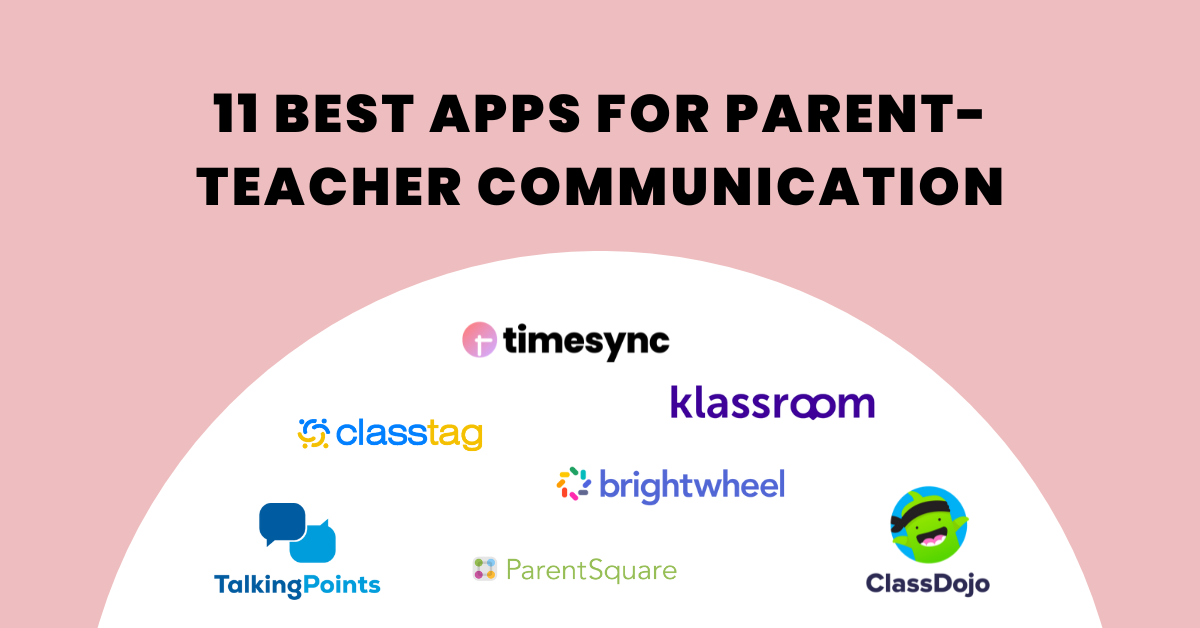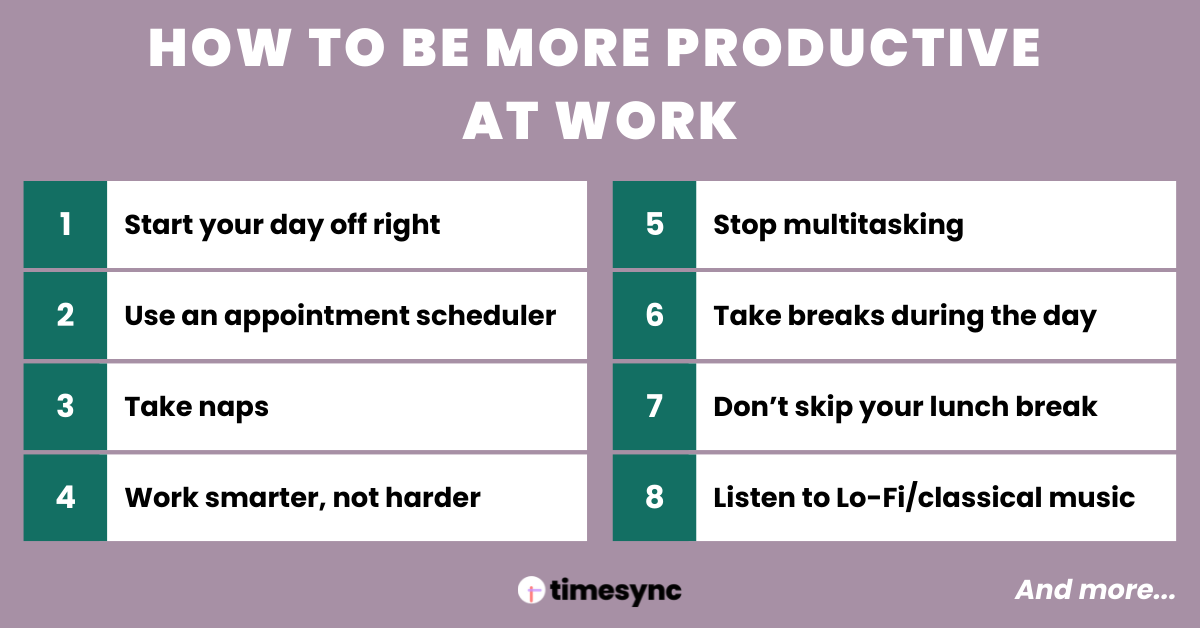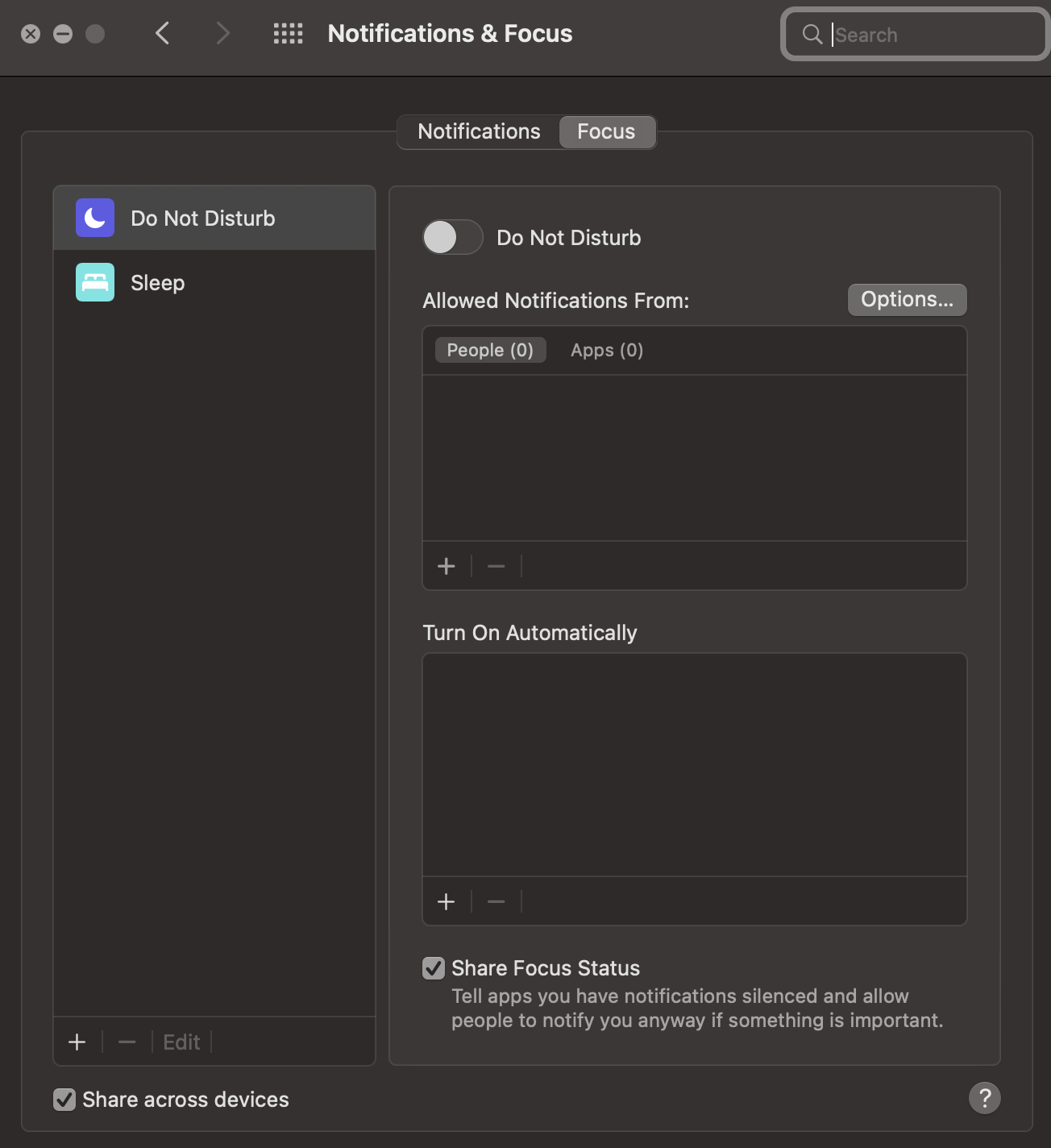




Content Marketing Lead
As business professionals, we all strive to do better at work. Whether it’s completing additional tasks, meeting deadlines, or simply finishing up the work you’ve set for yourself for the day.
It’s completely normal to be unproductive — studies have shown that the average worker is only productive for 2 hours and 53 minutes a day. But, if you have days where you consecutively feel completely unmotivated and unaccomplished, then it’s probably time to do something about it.
We know you’re here because you’re feeling unproductive today, so continue reading on as we share some proven tips to help you stay motivated and productive!
While this sounds like a no-brainer, you’d be surprised how many people actually don’t have a productive day because they woke up on the wrong side of the bed.
If you usually have packed mornings — like getting the kids ready for school, preparing breakfast, or making a trip to the bank, make it a point to wake up earlier so you’re not rushing.
Rushing can increase your stress levels and make you more reactive to stress at work.
Also, instead of chowing down on hashbrowns or fried eggs, opt to meal prep ahead of time (like the night before) so you can have a more nutritious breakfast to fuel you for the day.
Appointment scheduling can be an absolute chore. It can be tough trying to find a common date and time with your invitees — the email ping-pongs, the ‘I’m not available’, and even the ghosting.
That’s why if you have to schedule many meetings, an appointment scheduler will be your best friend.
These tools help to automate the scheduling process by allowing you to share a booking link with your invitees so they can simply select a time that works best. You can share your booking pages as a link, embed them onto your website as a widget, a standalone booking page, and even share timings in your email.
Several appointment schedulers also allow you to send reminders and notifications to your invitees before meetings, so you never have to turn up to an empty meeting room again.
This might (or might not) come as a surprise, but 67% of respondents to a survey say that spending too much time in meetings and calls distracts them from achieving the best they can at work. The same survey also showed that 34% say they waste between 2 to 5 hours per week on calls or meetings that don’t accomplish anything.
And to top it off, 35% say that they’d go to a meeting even if they knew it wasn’t going to be productive, instead of declining the meeting.
So if you’re in a managerial or C-level position and host tons of meetings just for simple check-ins or things that could have been said over an email, think twice before arranging a meeting.
If you really have to arrange a meeting, make them more engaging, don’t invite people who don’t need to be there, and have a clear agenda for the meeting.
One sure-fire way to spiral into a bout of unproductivity is to be unorganized. Trying to remember what you have to do off the top of your head while you’re midway through a task can be mentally exhausting.
So, to better manage your workload and have an overview of your tasks, the best way is to have a to-do list for the day or week. We wouldn’t recommend listing everything you have to do for the month, as the idea here is to keep things clutter-free and concise.
There are a number of ways to note down your to-dos. I personally use Kanban board on Notion, as it helps keep my tasks much more organized. It’s also easier for collaboration within teams and allows everyone to keep track of each others’ tasks.

Of course, you don’t have to use Notion. You can even use your computer’s sticky notes or notepad to do the job. If you’re feeling extra old school (no hate at all), whip out a pen and piece of paper and start writing it down! ✍️
Oftentimes, we’re the culprits for allowing our inboxes to accumulate with hundreds and even thousands of emails. It’s a common misconception that checking emails kills your productivity, and it should never be the first thing you do when you start your work day.
But remember this: the more emails you let accumulate in your inbox, the more messages you’ll have to read, review, and reply to.
While we’re not asking you to check your emails 74 times a day, set aside specific times every day to clear your email. It could be right before lunch, an hour in to work, or at 4 PM in the late afternoon.
Stick to this routine and don’t check your emails outside of these times. If you have an important email that you have to follow up on, you can set up an automated email to inform the recipient you’re busy and will get back to them later.
I’m pretty sure you’ve heard of the saying ‘work smarter, not harder’.
That’s because naturally, we all strive to accomplish more things in lesser time. Ever noticed hardworking employees who are still unproductive? That’s because they’re not effectively making use of their resources, time, and energy to complete their tasks.
Planning your work according to your schedule, automating your tasks using tools, and prioritizing important tasks can help you stay on track and might just be the secret to getting things done efficiently.
While this might seem like a no-no to many (because who sleeps on the job?!), it is proven to improve productivity. Don’t confuse this with sleeping though — naps are short rests you take, usually less than an hour, to provide restorative sleep.
According to the National Sleep Foundation, a 40-minute nap can improve productivity by 34%! It can make you feel more refreshed, ready to tackle your work, and power through the rest of the day. This is probably why some companies are introducing nap times and sleep pods to ensure a better-rested workforce.
So, stop the stigma and take naps!
By making small changes to your bad habits, you’d be surprised how much this can affect your productivity at work. Bad habits can often kill productivity, and some of these include:
You get the gist. While correcting these bad habits can be tough, it can work wonders for your productivity and keep you motivated.
More often than not, people think that multitasking = getting more things done. In fact, multitasking is one of the most common and worse ways to be unproductive. It gives the illusion that you’re occupied with several tasks at hand, but you’re just producing mediocre results.
Research found that multitasking actually wastes more time than it saves, and it can reduce your ability to concentrate and be creative.
That’s because when you multitask, you’re giving partial focus and energy to one task, before quickly moving on to the next. Most of your focus is actually spent on switching tasks.
To put it simply, you’re spending more time switching tasks and not completing them.
Our brains are only able to focus on one thing at any given time, so remember to space out your work and concentrate on doing one thing at a time.
Stress is often the main culprit behind being less productive. It’s very common to experience stress from work, family, or other personal problems. When stress builds up, this leads to reduced productivity and it becomes difficult for a person to manage their work.
How do you know if you’re feeling stressed? Here are some telltale signs to look out for:
A good way to manage your stress would be to take some time off work — go on a solo trip, spend time with your family, restart your hobbies, or just spend the weekend lazing around.
If you’re itching to check your email or finish up that document over the weekends, refrain from doing so. This will help you set healthy boundaries for yourself and help you relieve some stress.
If you’re unable to take time off work, you can invest in a stress ball or speak with your supervisor to get the support you need.
If you’re still concerned about taking naps while working, then consider taking short breaks throughout the day. To be honest, this is one of the ways that help me stay sane productive during a busy work week.
Research shows that taking breaks can help to reduce stress in the workplace — and as established, the less stressed you are, the more productive you’ll be.
This can be anything from taking a short walk in the park, staring out the window to rest your eyes from the digital strain, or setting time aside to complete a puzzle piece. You could also try the Pomodoro Technique, which helps you take consistent breaks with the help of a timer.
For many workers, lunch breaks are the only window of time we get to tear our eyes away from the screen and relax a little. Also, having a proper lunch is more important than you think it is — filling yourself up with fuel food like carbohydrates and protein is actually food for the brain too.
In other words, food literally fuels your brain.
So, if you’ve decided to skip lunch because you want to complete that presentation slide or finish up a document, think again.
This is my personal favorite — and it has certainly helped me during days when I feel extremely unmotivated.
A study has shown that music can help enhance your cognitive performance. Of course, while rock and roll or heavy metal music might not be the best choice, something downtempo like Lo-Fi or classical music will do the trick.
Here are some benefits of listening to slow, relaxing music:
Pinpointing your energy levels and planning your tasks based on that can be a major boost to your productivity.
This makes sense because if you’re productive right after lunch, you’re more ready to take on a complex task — and during periods of the day where you’re slower, you can complete the easy tasks.
Do Not Disturb (DND) stops all incoming notifications and calls from making any sound, vibration, or lighting up the lock screen on your iPhone. But not many people know this — if you’re using a Macbook, you can turn on DND for your computer too.
This means you can silence every single notification from your laptop — think Slack, emails, or any other alert you might have. If you find that completely cutting off from the world is too much for you, you can even allow notifications from certain people or certain apps.

You can also schedule periods where you want to have your phone on DND so that you can achieve maximum focus and productivity.
It’s easy to get caught up in the complexities of life and work with the concrete buildings that surround us almost every day. That’s why it’s so important to spend time in nature and appreciate the greenery — take a walk in a nearby park, or just step out of the office for a breath of fresh air.
Studies have shown that spending just 10 minutes in nature actually reduces stress and improves your mood, focus, and physiological markers like your heart rate.
Also, some scientists and researchers believe that because our eyes are at the peak of their perception to detect the wavelengths corresponding with the color green, the shade may calm us down. This basically means that green is the easiest color for the retina to perceive.
With less strain to perceive the colors, our nervous system can relax when perceiving the tone, which ultimately reduces stress levels.
Productivity isn’t correlated with doing work non-stop like a machine. We aren’t robots, so it’s important to take a step back to reassess your work schedule and take frequent breaks.
We hope that this list of productivity tips will help you manage your stress and keep you motivated as you power through and strive to achieve the best that you can be! 💪

Faye is a content marketing lead at Novocall. When she’s not busy writing articles for Novocall’s blog, she spends her time baking and playing with her dogs.
Related articles
Subscribe to our blog
Get insights & actionable advice read by thousands of professionals every week.